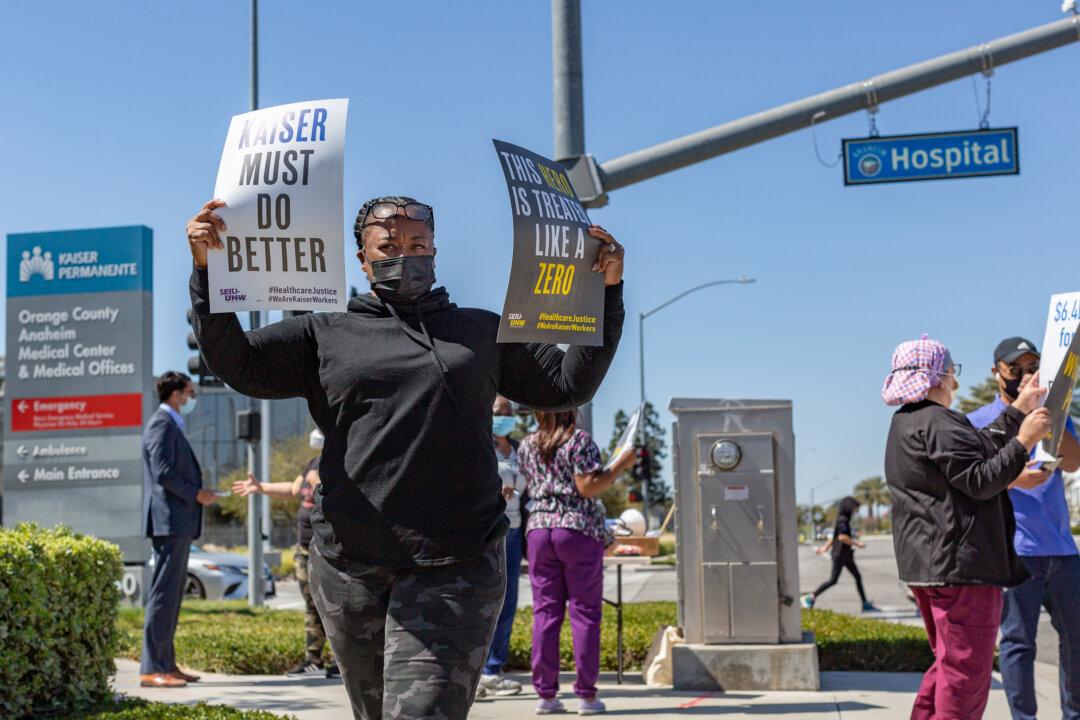Nearly 4,000 health care workers around Washington, D.C., voted this week to approve a strike at Kaiser Permanente, according to a statement from a union.
Union officials allege that Kaiser executives aren’t listening to their demands, while at the same time violating the law. It comes after similar authorizations by unions representing some 80,000 Kaiser Permanente workers in Washington state, Colorado, Oregon, and California in recent days.





